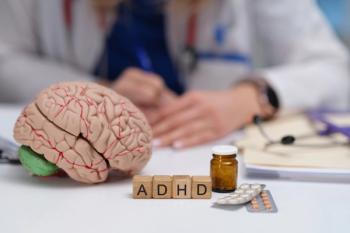
- Consultant for Pediatricians Vol 10 No 4
- Volume 10
- Issue 4
The Dx and Tx of Young Children With Disruptive Behavior Problems
I think it would be very difficult to give parents advice on childhood behavior based on the little snippet
I think it would be very difficult to give parents advice on childhood behavior based on the little snippet-of a child who “slaps” and “bites” in preschool-provided in the Parent Coach feature “Child Near Expulsion From Preschool: Is Medication the Answer?” by Neelkamal Soares, MD, and Laura Pierce, MS (CONSULTANT FOR PEDIATRICIANS, February 2011, page 54). I would like to know whether the child exhibits similar behaviors at home. Is there a family history of mental illness? Is there any stress going on at home? For LP (Laura Pierce, MS) to say that disruptive behaviors occur for a “handful of reasons” (eg, “to get attention”) is shortsighted. This child could be autistic, language-delayed, depressed, or in the early stages of bipolar disease. Attention-deficit/hyperactivity disorder is not a “label,” it is a medical diagnosis, just like diabetes or ear infection is. Aggression is “natural” in children; however, it must be excessive for the teacher to single out this child.
The scarcity of child psychiatrists and developmental pediatricians in our rural community is one of the reasons why I do prescribe antipsychotics for young children. I am trying to make a difference.
-- Mark Weinreb, MD
Thank you so much for your comments. I will address each concern individually. First, in real-life practice, pediatricians and pediatric practitioners frequently receive just a snippet from parents who expect that advice will be provided. All antecedents and necessary data are often not available. Yes, it is valuable to obtain information on other environments; however, even if the behavior is
occurring exclusively in one environment, it warrants intervention-if not diagnosis. Similarly, although it is important to inquire about possible etiological factors (such as family history and psychosocial stressors), they do not change the fact that intervention is warranted while the search for a cause continues. Our intention for this brief vignette was to target a dramatic concern in one environment, based on a real-life parental report. Broader excursions would naturally follow and would be elaborated on in the context of a complete review.
Second, LP is a school psychology trainee and her perspective is a valuable one. In the interprofessional approach, we learn terminologies that our colleagues in other disciplines use; “label” is an educational term used in service-driven models, and “diagnosis” does not come into play. You might have experienced this in your own community, when an autism diagnosis by a professional does not equate to an autism label in schools. School psychologists do not venture into diagnoses such as depression and autism, because these diagnoses do not determine behavioral interventions, functional analyses of the behaviors do.
Ample research in the field of behaviorism supports the idea that behavior often serves a relatively few number of functions, although topographies can be dramatically different. You and I could argue whether this preschooler had “early stages of bipolar disease” because experts in child psychiatry dispute the validity of such a construct in young children. Excessive aggression more than typical for age is in the eye of the beholder; and one of the criteria for a mental health disorder is impairment of functioning in an environment.
Third, I do not dispute the lack of specialist availability in rural communities, having myself practiced in rural Kentucky for 5 years. Nor do I disagree that all of us pediatricians try to make a difference in our communities in the face of scarce support and resources. However, prescribing antipsychotics for young children is fraught with problems, even in the face of good intentions. The adverse-effect profile of these agents and lack of extensive literature denoting effects for specific target symptoms in this age-group makes good behavior management with etiological evaluation a better option.
As a board-certified developmental-behavioral pediatrician for 10 years with extensive psychopharmacology experience, I continue to have great respect for the atypical antipsychotics; as described in our Parent Coach feature, they are one of a variety of tools in the treatment of children with disruptive behavior. However, it takes only one patient with tardive dyskinesia or diabetic unmasking to make one reconsider use of these medications in young children.
-- Neelkamal Soares, MD
Developmental-Behavioral Pediatrics
University of Kentucky College of Medicine
Lexington
Articles in this issue
over 14 years ago
Does This Brown Patch on a Boy’s Buttock Signal Underlying Illness?over 14 years ago
What Rx Findings Reveal About Teenage Boy’s Elbow Painover 14 years ago
Osteomyelitis Associated With Cat-Scratch Diseaseover 14 years ago
Lymphangioma Circumscriptum With Secondary Cellulitisover 14 years ago
Gastroschisisover 14 years ago
Lodged Spaghetti Strandover 14 years ago
Labial Fusionover 14 years ago
Parameatal Urethral Cystover 14 years ago
Hymenal Tagover 14 years ago
Penile Angioedema After Peanut IngestionNewsletter
Access practical, evidence-based guidance to support better care for our youngest patients. Join our email list for the latest clinical updates.








